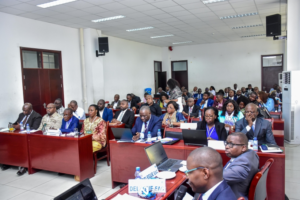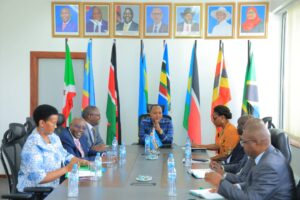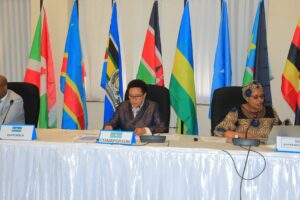
Will the East African Community Competition Authority Enhance Competition and Protect Consumers?
Fashioning Understanding
The East African Community Competition Authority (EACCA) has entered into a Memorandum of Understanding (MoU) with the Fair Competition Commission (FCC) of Tanzania to strengthen collaboration in advancing competition policy and legislation throughout the East African Community (EAC). EACCA’s primary mission is to facilitate equitable competition and safeguard consumer well-being within the EAC. It administers the EAC Competition Act, which prohibits anti-competitive behaviors, ensures a level playing field, and promotes economic integration. The Authority holds jurisdiction across the EAC Common Market, streamlining cross-border transactions and taking precedence over national competition authorities in matters pertaining to cross-border competition, in accordance with the Treaty.
The FCC, on the other hand, is responsible for overseeing competition within the market, preventing monopolies, and price manipulation, and safeguarding consumers from harm. It addresses issues related to anti-competitive practices, mergers, and consumer protection. The FCC actively enforces the law and combats counterfeit products, working in conjunction with sector-specific regulations.
The MoU between FCC and EACCA signed in Arusha, Tanzania, aims to facilitate cross-border trade, cooperation in cross-border competition and consumer protection matters, information sharing during joint investigations, and market inquiries and studies. It also provides a platform for technical assistance and capacity building. Both institutions aim to support the EAC’s goal of a competitive Common Market and will work together while respecting their jurisdictional independence to implement the EAC Competition Act. They have established a working group to implement prioritized activities, including reviewing regulations and guidelines for effective implementation.
The existing problems
Recently, Tanzania has experienced a shortage of US dollars, a problem that made the Bank of Tanzania (BoT), issue a statement to warn people about fake US dollars. The warning statement came after BoT made the Foreign Exchange Regulation in October 2023. Away from the regulation acts and legislations, in borders, there are vendors who exchange money in ways that are riskier to the consumer. People engaged in the business are not only exchanging Kenyan shilling for Tanzanian shillings but also Tanzanian shillings for US dollars among other Western currencies. This is one example of a business that puts consumers at risk which is against the EACCA’s primary mission of safeguarding consumer well-being within the EAC.

Another problem is the limited financial knowledge that most people in Tanzania have which leaves consumers of financial services worse off. They often fall prey to Ponzi Schemes, Pyramid Schemes, and shark loans. While these issues may seem to be a voluntary exchange, in reality, they are not because the consumer’s side is less informed about the exchange process. Similar issues and other anti-competitive behaviours are observed in other markets.
The success of the Signed MoU
Foreign exchange is a cross-border issue. Challenges being experienced in Tanzania are replicated on the other side of her border. The signed MoU between EACCA and FCC is essential in regulating the issue not only on the border of Tanzania and Kenya but in all East African Countries. In implementing this, citizens need to be well-informed. That can be achieved by having a portal that has real-time information about various business issues, such as current exchange rates.
“When people have limited information, some firms can take advantage to monopolize the market.”
Statistics on business issues need to be well documented and updated regularly. Authors, writers, journalists, and content creators need to use them to expound on what mean to the general public. Recently the available data on East African Trade at EAC data portal has data extends to 2016 only. While statistics is a public good, some data are only available on demand.
When people have limited information, some firms can take advantage to monopolize the market. This is the fact that they will be the only ones known although they are not alone in the market. In Tanzania for example, filling stations are synonymous with the brand name Shell, which is a global group of energy and petrochemical companies. Shell therefore seems to have monopolized the energy market although there are other companies. This happens when people are less informed.
While it is the duty of EACCA to implement the competition policy and EAC Competition Act, citizens ought to provide information about cases of law violation. This calls for the need of the EAC people to know by heart the EAC Competition Act to make it be easy for them to report whenever there is any misconduct.
The signed MoU should not just be a diplomatic and political step but a real step to a competitive market and protect customers. One of the challenges of African regional integrations is the lack of the ability to enforce measures against those who do not observe the agreements. A good example of this is when EACJ could not enforce the ruling against Tanzania in the case of the Media Services Act 2016.
The collaborative efforts between the East African Community Competition Authority (EACCA) and the Fair Competition Commission (FCC) of Tanzania represent a significant stride towards achieving equitable competition and safeguarding consumer welfare within the East African Community (EAC). It is essential that this collaboration goes beyond diplomatic and political gestures, truly advancing a competitive market and consumer protection. The success of this collaboration will not only benefit the EAC but also set an example for similar endeavors across the continent, demonstrating the power of international cooperation in fostering fair competition and consumer well-being.
These are the writer’s own opinions and do not necessarily reflect the viewpoints of Liberty Sparks. Do you want to publish in this space? Contact our editors at info@libertysparks.org for further clarification.



